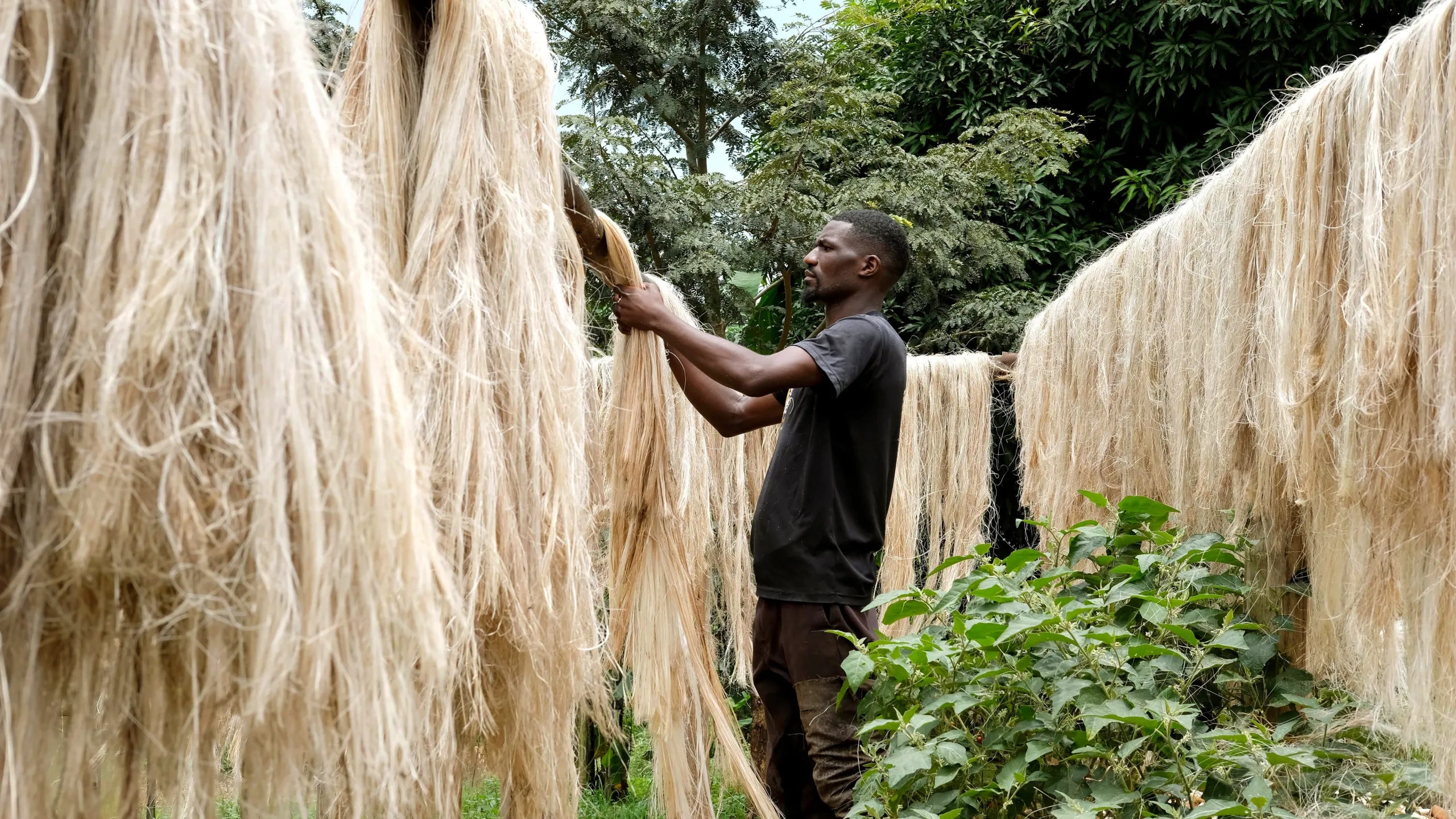In Uganda, banana plants are a significant part of the daily diet and local traditions, contributing up to 25 percent of the daily calorie intake, particularly in rural areas. However, once the fruit is harvested, the stems are often discarded and left to rot in fields, becoming a waste problem. TEXFAD, a Ugandan startup specializing in waste management, has found a solution by transforming these discarded banana stems into valuable biodegradable handicrafts, including hair extensions.
Uganda holds the title of having the world’s highest banana consumption rate and is Africa’s leading banana producer. The country’s banana production has been steadily increasing over the years. In collaboration with seven different farmers’ groups in western Uganda, TEXFAD purchases these banana stems from farmers at a rate of $2.7 USD per kilogram of dried fiber. Additionally, they work with Tupande Holdings Ltd., which collects stems from central Uganda farmers.
Tupande Holdings Ltd. and its workers play a crucial role in this process, sorting through the stems to select the desired ones. Machines then process the fiber into tiny threads. This initiative not only reduces waste but also provides additional income for farmers. TEXFAD employs over 30 people in a village outside Kampala, where they handcraft items such as rugs and lampshades from banana fibers. These products are exported to Europe, contributing to the economic growth of Uganda.
Furthermore, TEXFAD is working with researchers to explore the possibility of creating fabrics from banana fibers. They are also designing biodegradable hair extension products, aiming to replace synthetic alternatives, which often contribute to environmental pollution.
Faith Kabahuma from TEXFAD’s banana hair development program emphasizes the importance of biodegradable products, stating that synthetic fibers tend to clog the environment. She believes that TEXFAD’s hair extensions will soon be available on the market as an eco-friendly alternative to synthetic products. This innovative approach not only benefits the environment but also provides economic opportunities for Ugandan farmers and communities.




















